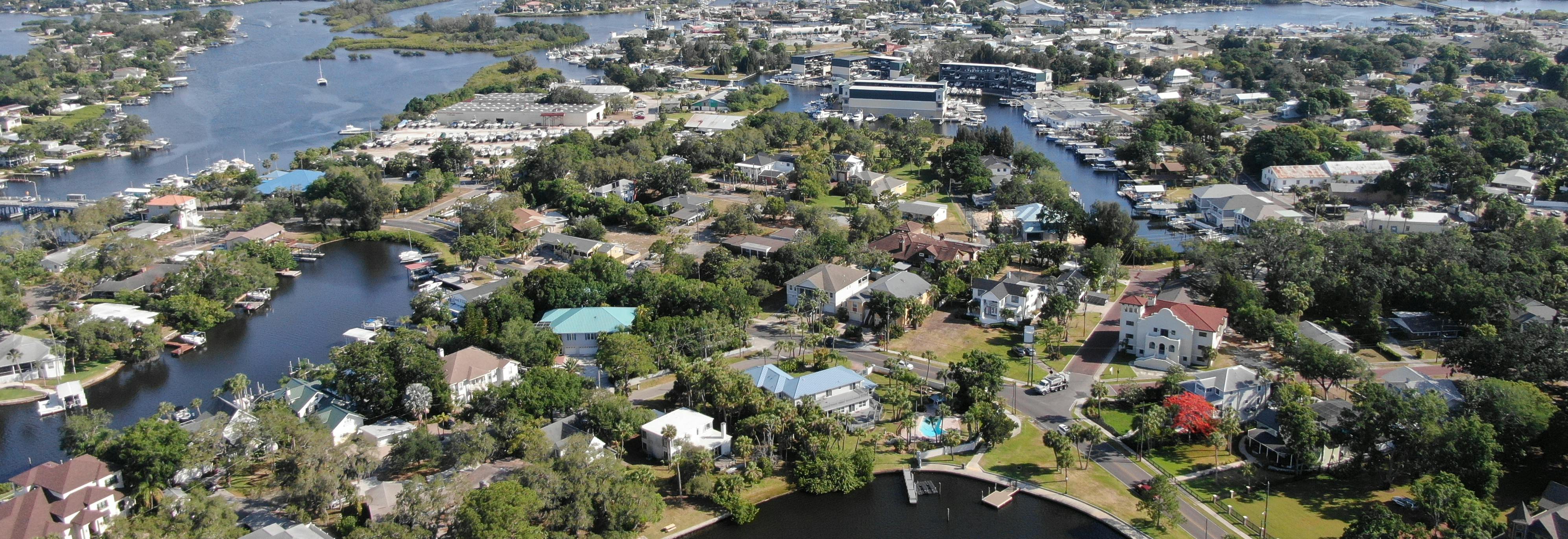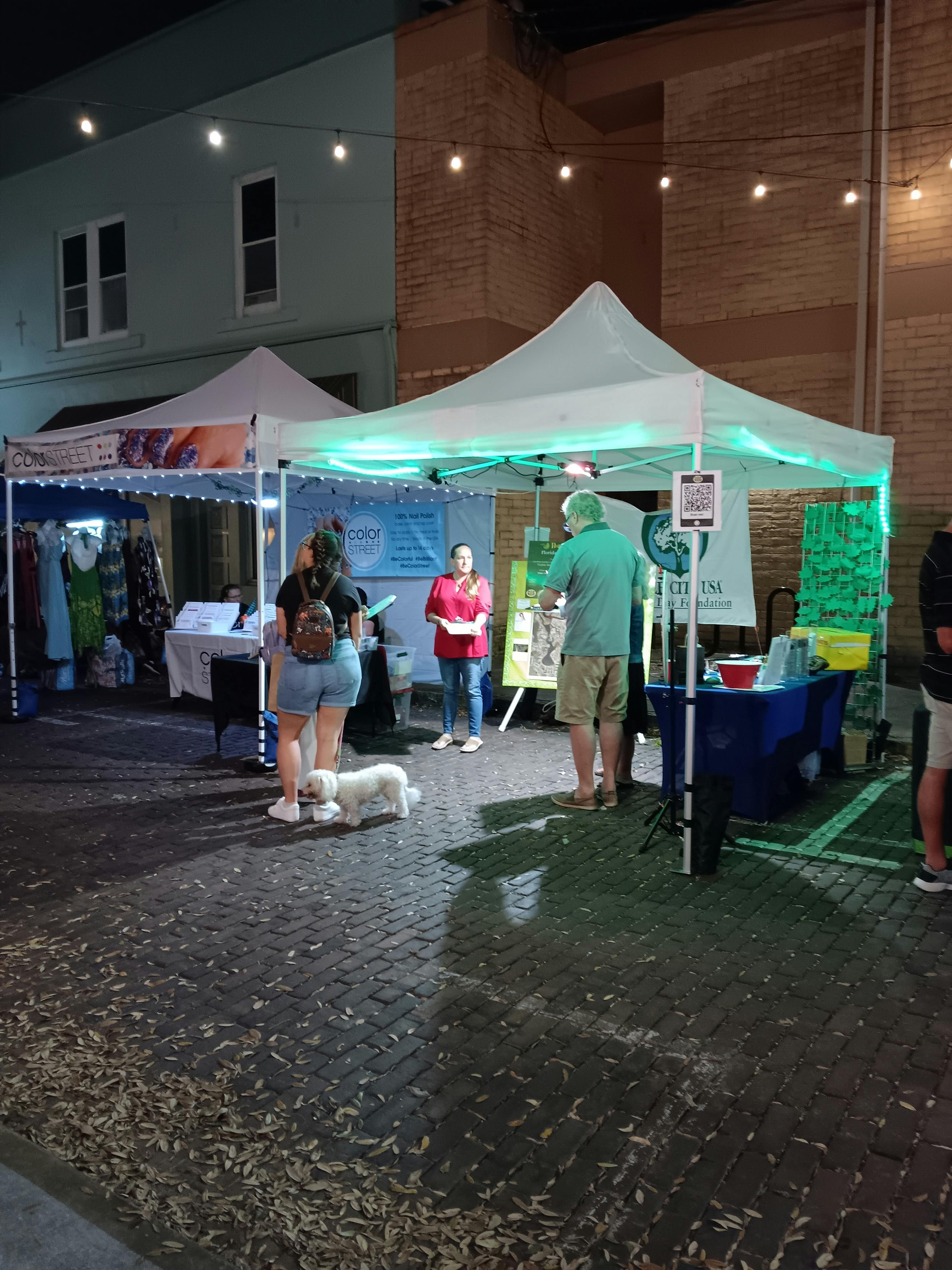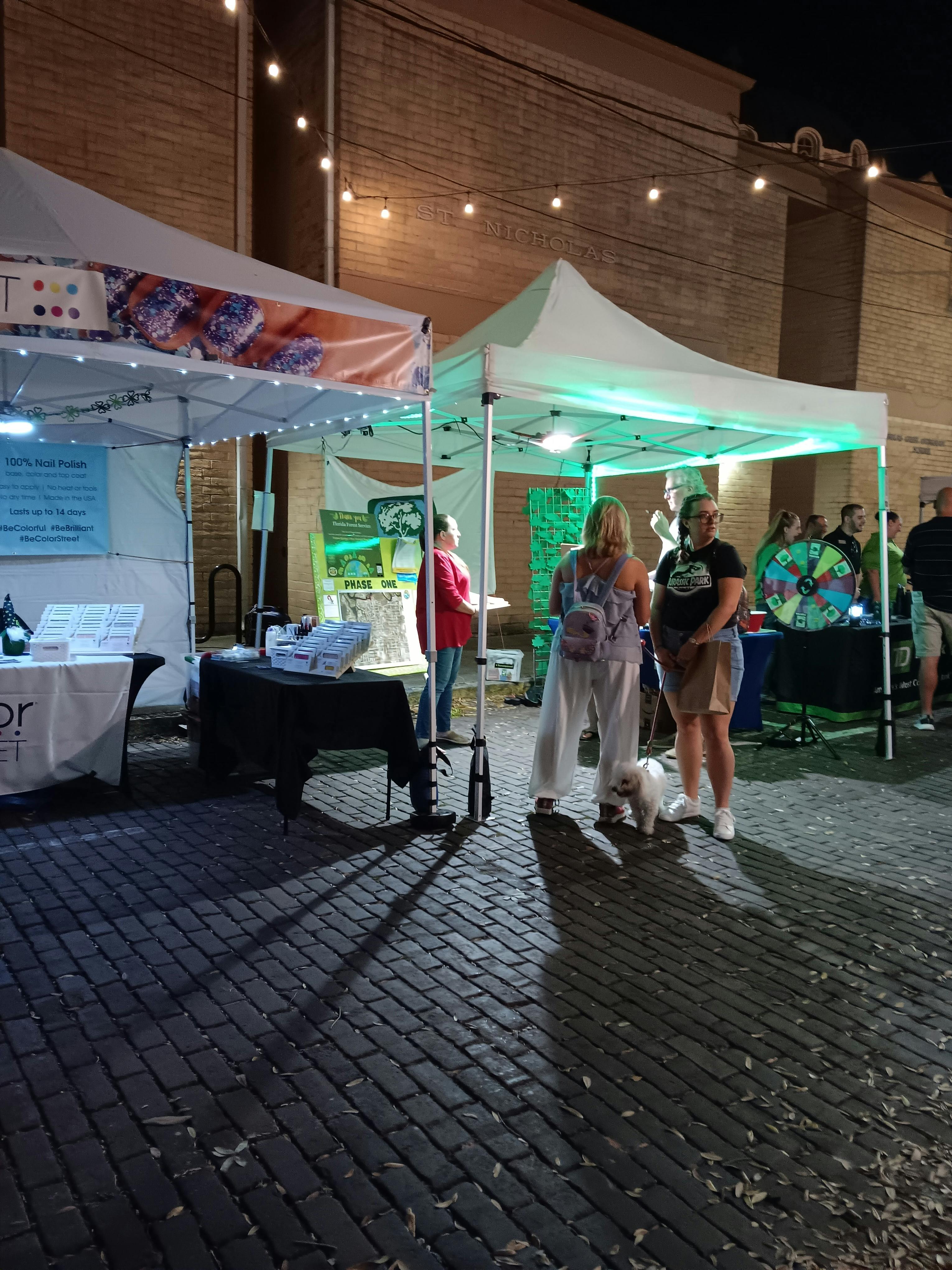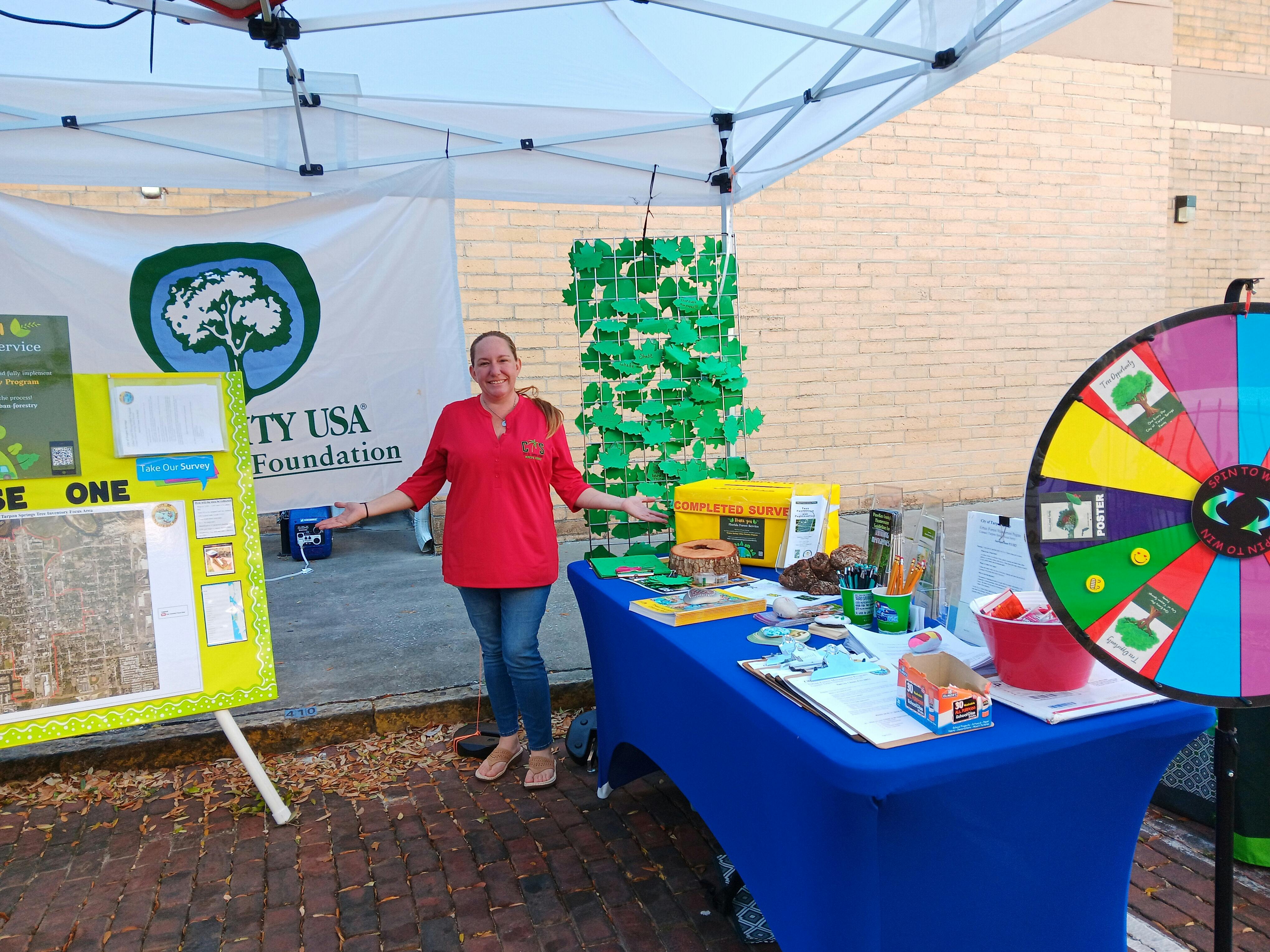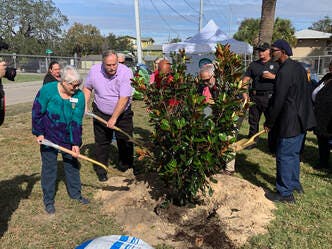Urban Forestry Management Program
BACKGROUND
The City of Tarpon Springs has been awarded several grants to create, monitor, and fully implement a Tarpon Springs Urban Forestry Program and street tree inventory.
An Urban Forestry Master Plan is an action plan that provides the City detailed information, recommendations and resources needed to effectively and proactively manage public trees.
City of Tarpon Springs Municipal Arborist, Mona Neville, will oversee the successful completion and implementation of the program!
 |  |
SCOPE OF WORK
The Tarpon Springs Urban Forestry Program will be created within three years with each year having a specific scope of work.
- YEAR 1: Hazardous and Street Tree Inventory - The inventory will document and collect data on trees on public lands for the purpose of city tree asset management.
- Phase I complete - Read the final report located in the documents tab of this page.
- Phase II complete- Read the draft Maintenance Action Plan in the documents tab of this page.
- YEAR 2: Creation of an Urban Forestry Management Plan - The plan will contain a description of the community, a vision for the urban forest, a strategic plan, an implementation and a monitoring plan, and a prioritization criteria work plan for 5, 10, and 20 year cycles.
- Currently drafting plan with consultant
- YEAR 3: Replanting the Urban Forest - This phase will consist of planting street trees in areas with little to no canopy coverage to provide future shade, wildlife, and returning a sense of community back to neighborhoods.
🌳 Urban Forest Management Plan Adopted! 🌳
We’re excited to announce that on July 22, 2025, the Tarpon Springs Board of Commissioners officially adopted the Urban Forest Management Plan (UFMP)! This milestone represents years of collaborative work, community input, and environmental vision coming together to guide the future of Tarpon’s trees and green spaces.
Our urban forest is more than just beautiful — it improves air and water quality, provides wildlife habitats, cools our neighborhoods, and boosts property values. But our canopy has declined in recent years due to storms, policy changes, and redevelopment. This plan, developed with your input, outlines clear, actionable steps to reverse those trends and ensure a healthy, thriving urban forest for generations to come 🌱.
Highlights of the UFMP:
✅ Adopt the 3-35-300 benchmark: aim for everyone to see at least 3 trees from home, 35% canopy cover in neighborhoods, and a park within 300 yards of every residence.
✅ Expand and protect our tree canopy through proactive planting, preservation, and smart policies.
✅ Engage the community with fun workshops, Arbor Day events, and opportunities for everyone to get involved.
✅ Aligns with our City’s Strategic and Sustainability Plans to build a greener, healthier, and more resilient Tarpon Springs 🌿.
Community support is strong: over 80% of residents rated our urban forest as “very important”, and we’re listening! Together, we can make sure our trees keep telling the story of Tarpon Springs — from our historic sponge docks to our vibrant neighborhoods.
🌿 Thank you to the Sustainability Committee for your thoughtful guidance and letter of support. Your dedication helped turn this plan into a reality.
🎯 The work doesn’t stop here — now begins the exciting phase of implementation. Let’s continue working together to make Tarpon Springs greener, healthier, and more resilient!
Read the plan and take a brief survey to share your thoughts.
#TarponSprings #UrbanForest #UFMP #SustainableFuture
🌴 Prepare for Hurricane Season – Trim Your Trees Today! 🚒
Hurricane season is here, and we’re asking all residents to do their part in keeping Tarpon Springs safe and accessible. Please inspect and trim any trees, shrubs, or vegetation that extend over sidewalks, streets, or other public rights-of-way from your property.
Per city code:
Trees must be trimmed to maintain a minimum 13 ft. 6 in. vertical clearance over roads (per the Florida Fire Prevention Code).
At least 10 ft. of clearance must be maintained over sidewalks or improved rights-of-way.
Overgrown vegetation and debris should be removed promptly and properly disposed of.
🌳 Why it matters:
✅ Helps emergency response vehicles navigate safely.
✅ Prevents power outages and road blockages.
✅ Keeps your neighborhood clean, safe, and accessible for everyone.
Let’s work together to keep our streets safe and ready. Your cooperation helps protect lives and property!
For more details, visit:
🔗 City Ordinance: Tree Maintenance
Thank you for being a responsible member of our community. Stay safe this hurricane season! 💪🌪️

URBAN FOREST MANAGEMENT PLAN PROJECT
Trees are an important part of life in Tarpon Springs. They help tell the story of our city’s history, make our neighborhoods more beautiful, and improve the health and happiness of everyone who lives here. Our city already has strong rules to protect trees and landscaping, and now we’re excited to work with the community to create a new urban forestry program that everyone can be part of.
VISION STATEMENT
Our vision is to create a thriving, inclusive urban forest that protects heritage, enhances the environment, improves stormwater management, and delivers measurable, sustainable outcomes for the community of Tarpon Springs.
THANK YOU TO OUR URBAN FOREST MANAGEMENT PLAN PARTNERS
The work upon which this project is based was funded, in whole or in part through a subrecipient grant awarded by the U.S. Department of Agriculture through the Florida Department of Agriculture and Consumer Services. The contents do not necessarily reflect the views or policies of the U.S. Department of Agriculture nor does mention of trade names, commercial productions, services or organization imply endorsement by the U.S. Government.
 |  |  |
